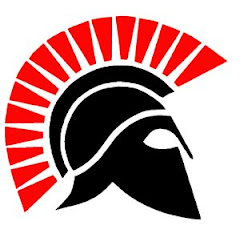1) Reading Response Directions
2) Chapter 3 Reading Response Questions
SPARTANS,
1) Reading Response Directions
Please take note of the suggestions and directions for RR posted today and on 22 June.
Please make sure you have the proper heading on your assignment (Blog entry: 4 July), and assignment title centered below the heading and in your e-mail subject line.
Please also start parenthetically citing any quoted information, as some of you have already begun doing. For example, at the end of a sentence using a quote to answer #1, a student would add the following at the end of the sentence before the period: (Kennedy, Cohen & Bailey, 2002, p. 44). This is APA format, not MLA which you are using for your mini-research papers.
DO NOT wait until July 15 to begin this assignment. It is due in my e-mail inbox at spartan.hoa@gmail.com by 11:59pm (Pacific Time) on 15 July 2008. Anything received after this time will get no credit/0 points.
2) Chapter 3 Reading Response Questions
1) Explain the ideas of John Calvin and their influence on the Anglo-American colonies and their people.
2) Describe how documents such as the Pilgrims' Mayflower Compact, the Fundamental Orders, and the New England Confederation were influential in developing representative government in the New World.
3) Explain (the causes and effects) of the Great English Migration.
4) Describe how the ecclesiastical nature of early New England society impacted the concept of government.
5) Evaluate the the actions and consequences of religious dissidents like Anne Hutchinson and Roger Williams.
6) Explain the roots and impact of the Pequot War and King Philip's War.
7) Briefly describe the impact of the Glorious Revolution on the Anglo-American colonies.
8) Compare and contrast Dutch colonization in the Americas with English colonization in the New World.
9) Describe the Religious Society of Friends and the Pennsylvania settlement.
10) Analyse the Middle Colonies and their unique characteristics.
11) Define the term "Eurocentric" in your own words.
12) The term "historiography" refers to the history of the historical record, methods of historical investigation, and interpretations of history. (We will spend more time on "historiography throughout the year.) Explain the implications of the newer historiographical approaches to colonial history shared by historians such as White, Kupperman, and Gutierrez, to an understanding of early American history and the study of history in general.
06 July 2008
Reading Response Directions and Chapter 3 RRQ
Subscribe to:
Post Comments (Atom)
2.jpg)

No comments:
Post a Comment